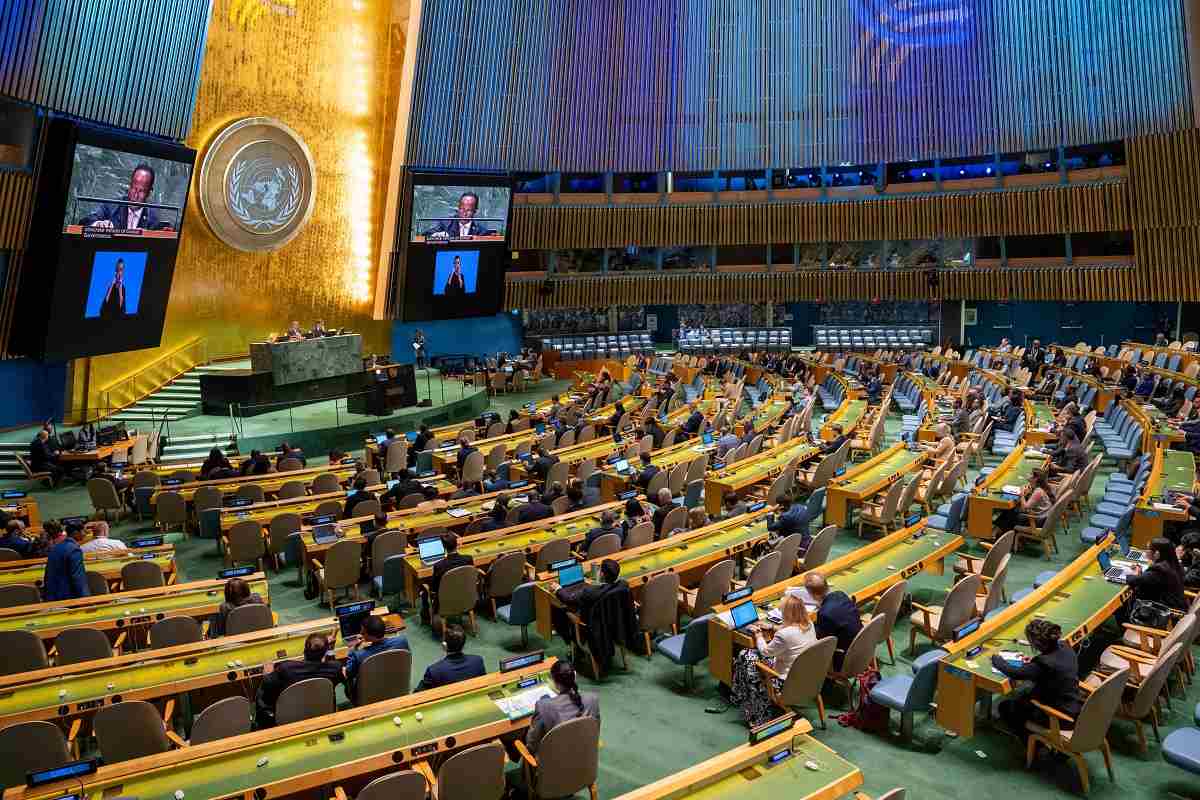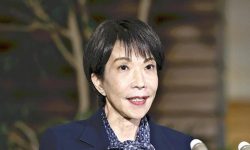
A view of the General Assembly Hall during the “Summit of the Future” at United Nations Headquarters in New York City, U.S., September 22, 2024.
13:46 JST, September 23, 2024
New York (Jiji Press) — The Summit of the Future began at the U.N.. headquarters in New York on Sunday for a two-day run, with participants adopting an outcome document vowing to strengthen international cooperation to resolve an array of problems facing global society.
In the document adopted on the first day, titled the Pact for the Future, participating world leaders vowed to take actions in 56 areas to realize a sustainable and peaceful world.
The summit comes at a time when many natural disasters have occurred around the world and the conflicts in Ukraine, which has been invaded by Russia, and the Middle East are deepening.
While aiming to eradicate poverty and starvation, the pact included the goal of “tripling renewable energy capacity globally and doubling the global average annual rate of energy efficiency improvements by 2030.”
In the field of security, the document said, “We will advance the goal of a world free of nuclear weapons.”
Participants vowed to “take concrete and practical measures to protect all civilians in armed conflict” and refrain from “the threat or use of force, or acts of aggression.”
“We will reform the (U.N.) Security Council,” they said, agreeing to promote discussions on increasing the number of member countries from Africa and Latin America. But the five permanent members—Britain, China, France, Russia and the United States—are reluctant to revamp the council, which has been criticized for being dysfunctional.
In addition to the Pact for the Future, two supplementary documents were adopted on the first day of the Summit of the Future.
One of them is the Global Digital Compact, which referred to the establishment within the United Nations of a multidisciplinary “Independent International Scientific Panel” of experts on artificial intelligence to promote scientific understanding of the new technology through evidence-based impact, risk and opportunity assessments.
The other is the Declaration on Future Generations, which called for leaving “a better future for generations to come.”
In the voting stage, Russia raised objections and submitted an amendment including a clause against the United Nations’ interference in domestic affairs, saying that no one is satisfied with the outcome document.
But the amendment was not put to a vote as only seven countries, including North Korea and Iran, supported it.
Top Articles in World
-

Israeli Ambassador to Japan Speaks about Japan’s Role in the Reconstruction of Gaza
-

Videos Plagiarized, Reposted with False Subtitles Claiming ‘Ryukyu Belongs to China’; Anti-China False Information Also Posted in Japan
-

North Korea Possibly Launches Ballistic Missile
-

Chinese Embassy in Japan Reiterates Call for Chinese People to Refrain from Traveling to Japan; Call Comes in Wake of ¥400 Mil. Robbery
-

Russia: Visa Required for Visiting Graves in Northern Territories, Lifting of Sanctions Also Necessary
JN ACCESS RANKING
-

Japan PM Takaichi’s Cabinet Resigns en Masse
-

Japan Institute to Use Domestic Commercial Optical Lattice Clock to Set Japan Standard Time
-

Israeli Ambassador to Japan Speaks about Japan’s Role in the Reconstruction of Gaza
-

Man Infected with Measles Reportedly Dined at Restaurant in Tokyo Station
-

Videos Plagiarized, Reposted with False Subtitles Claiming ‘Ryukyu Belongs to China’; Anti-China False Information Also Posted in Japan
























